Looking at Types of Homes
There are many different types of homes to consider. We’ll go into a bit more detail. Each type of home comes with pros and cons. Ultimately, the type of home you choose to buy is up to you and the type of Loan you are getting. Your lifestyle, location, and financing should ultimately support what works best for you. Let’s look at some of the different options you can consider.
Single-Family Detached
A single-family detached home is what pops into most people’s minds when they think of buying a home. This is typically a single-unit dwelling, standing alone on a piece of property purchased along with the home. The homeowner is usually responsible for all maintenance inside and out. Some single-family homes may be found in a developed community that offers amenities such as a pool, playgrounds, even a gym. If that is the case, there is a good chance there will be an HOA fee (Homeowners Association fee, see more below) to provide access to and maintenance of these shared spaces and amenities. These are all things to consider when determining what is a “must have” on your list versus a “nice to have.”
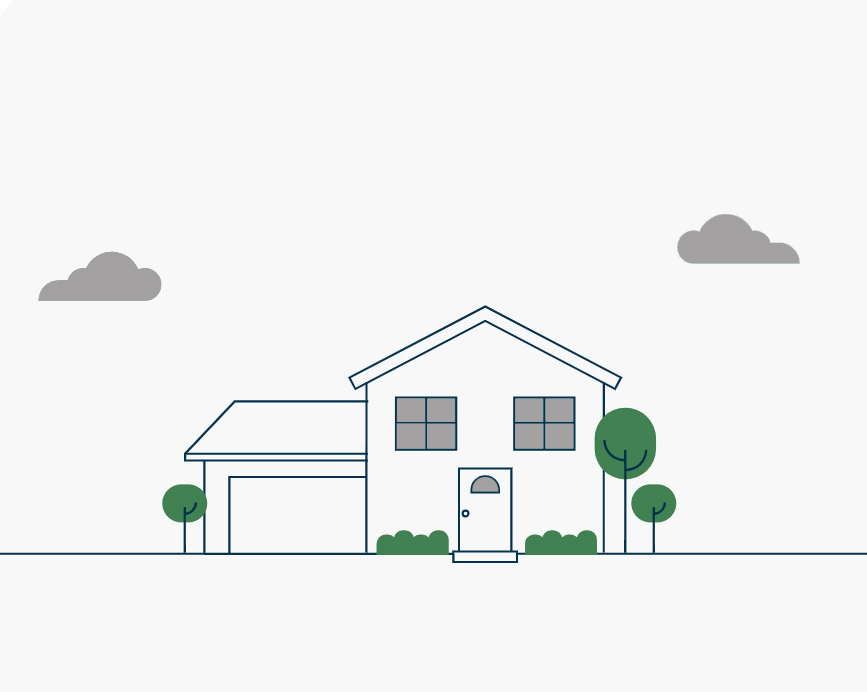
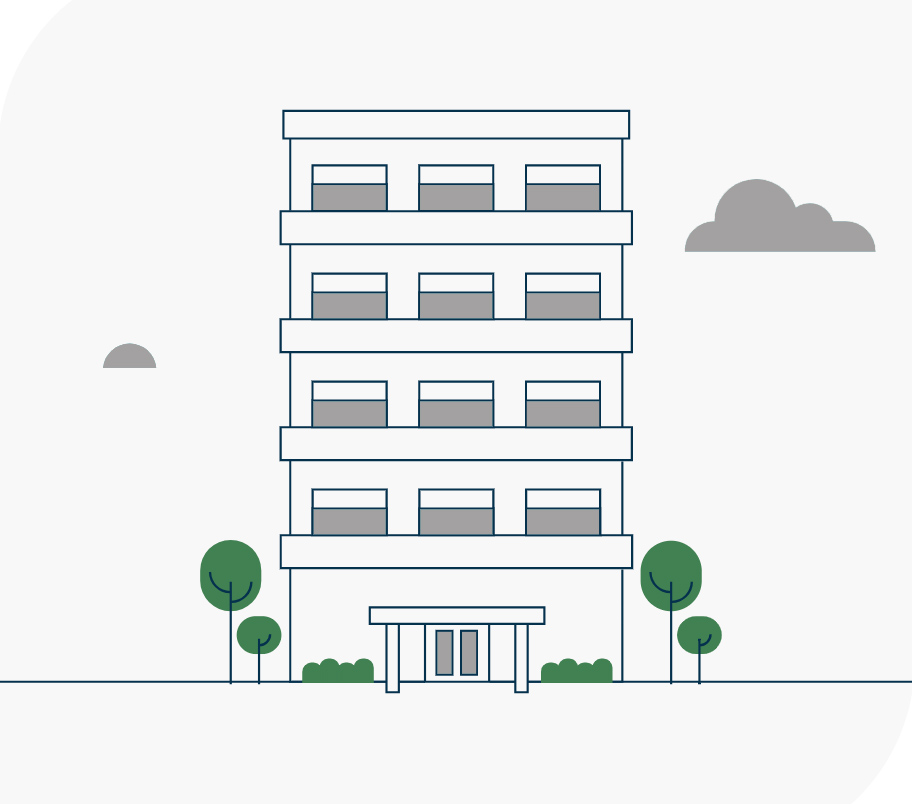
Condo
A condo, short for condominium, is typically a privately owned unit that is one of many other condo units in a larger building or stands alone in a condo community. Condos often result in sharing a wall with a neighbor and may not offer yard space. If lawn maintenance is something you want to avoid, a condo could be a good option for you.
And while the homeowner is responsible for maintaining the interior of a condo, there is typically an HOA fee or condo fee that goes toward paying a crew to maintain the exterior and shared spaces and amenities. These fees may add substantially to your overall monthly housing expense so make sure to factor them into your overall budget. However, access to the extra amenities, the location and some of the carefree maintenance might still make a condo the right choice for you.
Townhouse
A townhouse, or townhome, is usually a multi-floor unit that shares one or two walls with another property. A townhome has a private entrance and typically some sort of private outdoor space. Because they’re built up instead of out, their lot size is usually smaller, making them typically less expensive than a single-family home even though they may be similar in square footage. As with condos, there may be shared amenities like a pool, gym, and clubhouse, and usually there is an HOA fee for maintenance of exterior shared spaces and amenities. You may have a small private yard or landscaping to maintain, but it’s usually smaller than what you would find in a single-family home.
Note: An HOA fee could increase monthly expenses, so be sure to check for these fees when considering townhouses.
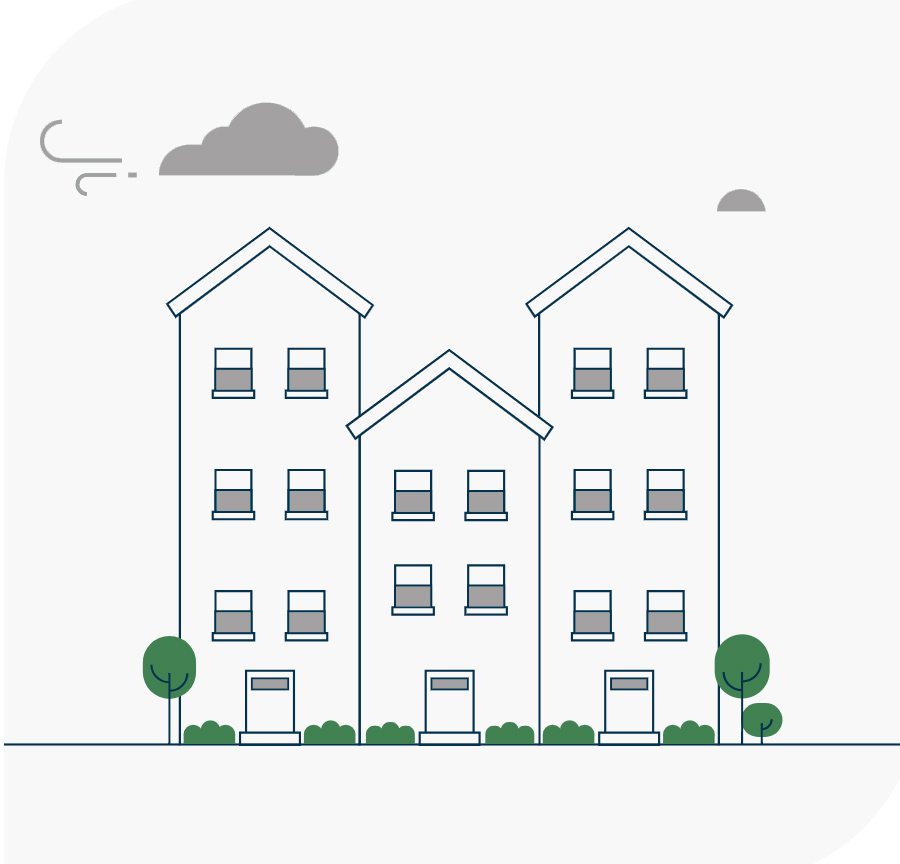
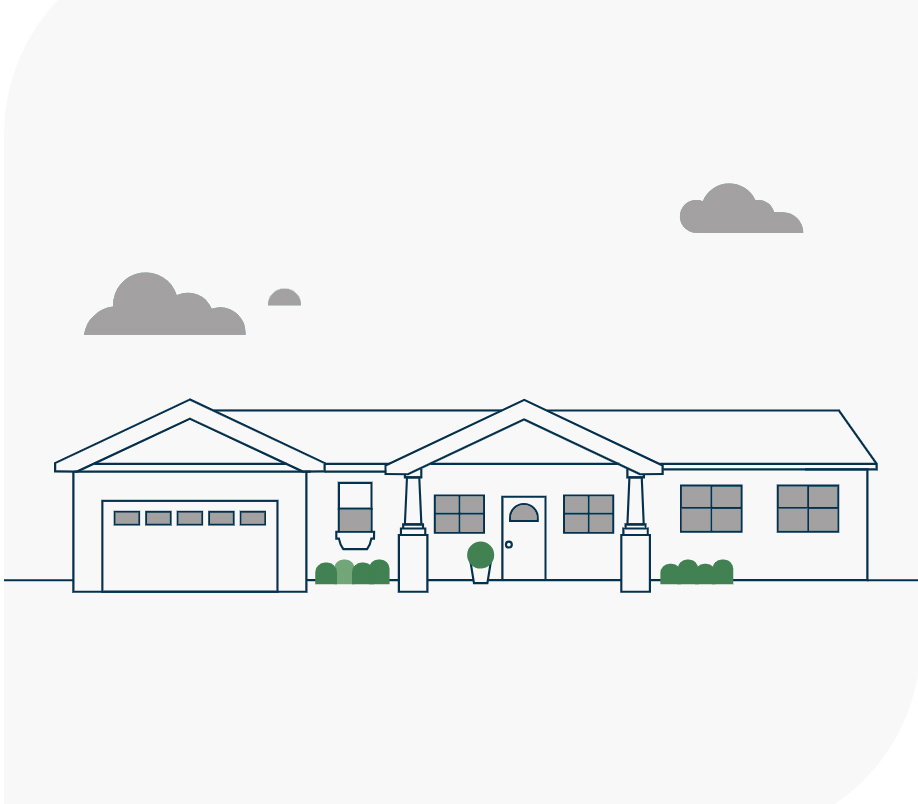
Manufactured Home
Manufactured homes are built off-site in a factory and then delivered to the selected homesite where utilities are connected, and assembly takes place. These homes can be placed on land you are either purchasing or leasing. Note that if the land is leased, it may be more difficult to obtain a conventional mortgage.
Manufactured homes are typically more affordable than site-built homes, and the latest generation of manufactured homes have similar features like open floor plans, energy-efficient appliances, attached garages, and porches. Many of today’s manufactured homes offer a broader range of options than in years past and may be a great way to get into a more affordable home of your own.
While the actual living unit is private, there could be additional jointly owned amenities like a pool, gym, or common green space (see Homeowners Association Fees below).
New Construction Home
A newly constructed home essentially means the home has not been lived in before. These can range from move-in-ready (sometimes called ‘spec’) homes, to ones under construction where the developer or builder may give you options for materials and finishes, to building from scratch on a plot of land. Although new construction homes can sometimes cost more and in some cases may take more time to build, they are a great option if you want a customized home and aren’t in a hurry to move in or don’t want to immediately invest in or manage renovations, home updates, or energy efficiency upgrades after buying the home.
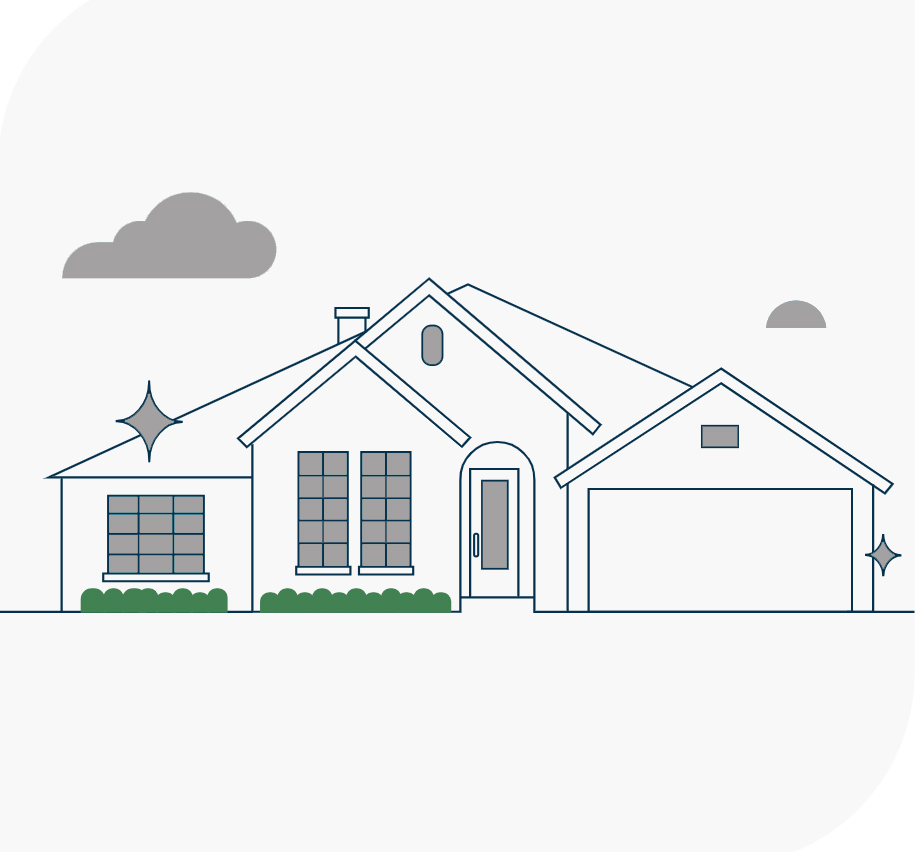
Homeowners Association Fees
A Homeowners Association fee (HOA fee or dues) is an amount paid by each homeowner to pay for common amenities or facilities. (The homeowners association is the group that creates and enforces the rules for the properties and residents, oversees the upkeep of amenities and facilities, and collects the HOA fees.) Any home type may be subject to homeowners association fees/dues. These fees or dues cover expenses for amenities such as common pools, playgrounds, green spaces, or even a gym. The fees paid to the association provide access to and maintenance of these shared spaces and amenities. So while the actual living unit is private, there could be additional jointly owned amenities like a pool, gym, clubhouse, garage, etc.
When necessary, an HOA may determine that a special assessment is required by each homeowner to cover the cost of building maintenance, repairs, or replacement of common amenities, like a new roof.
Looking for a Home
Once you and your Lone Star Luxury Agent decide the types of homes you want to look at, it’s time to get serious with your search. But before you do, you’ll want to consider several factors that will help your agent select homes that work for your budget and lifestyle. When deciding what you really want in a home, create a list of items that are absolute “must-haves” versus things that you would like but can live without (“nice-to-haves”). Let’s take a look at some key factors.
COST
To make your home search as efficient as possible, it helps to narrow your search by having a price range in mind. At this point, you may not know exactly how much money a lender will approve for your mortgage, but hopefully you will have gone through the pre-approval or pre-qualification process, which will give you a good idea of how much a lender will lend you (and may help strengthen your offer when you’re ready to buy.)
Also, it’s important to think about how much you can put toward your down payment as well as a budget range for your monthly payment, also keeping in mind your Loan type that varies for down payment amount between 0% and 20%.
LOCATION
When it comes to location, consider if you want to be near parks, shopping, schools, hospitals, and other community amenities or maybe far away from it all. Do you want to be able to walk to places or have more land? Then think about your commute to work. How important is the length of your commute? Is parking or access to public transportation important? Do you want to be near family and friends? Ask yourself these questions and then narrow down to a few neighborhoods so your real estate agent can show you homes in those areas. Keep in mind that location typically impacts costs.
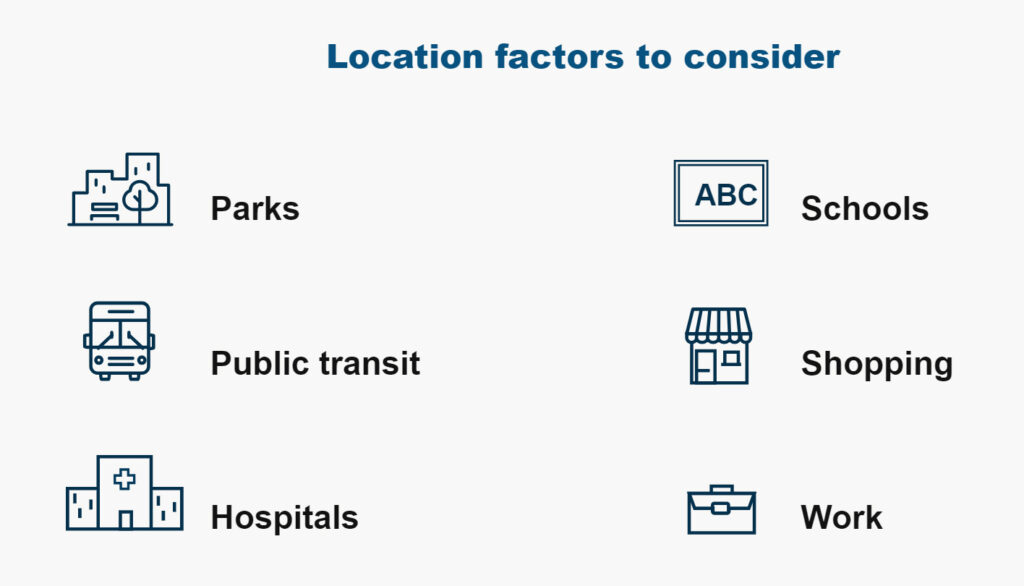
Age of Home: Fixer-Upper vs. Move-in-Ready
There are pros and cons to both older and newer homes, but choosing between the two comes down to what fits your lifestyle, budget, the type of loan, and personal goals. Some people seek out an older home or fixer-upper due to potential lower purchase price or wanting to do renovations tailored to their preferences, while others may only want to do minor updates or prefer a home that’s move-in-ready.
There are cost implications with both options. A fixer-upper could be less expensive now but could cost more overall due to repairs or renovation costs. A move-in-ready home could be more expensive upfront, but you may not have to put as much money into renovations.
Home Features
When searching for a home, it is important to focus on both the interior and exterior features that are important to you. Interior features have a lot to do with the size of home you want and need. Think about how many bedrooms and bathrooms you need. Are things like an open floor plan, a home office, a sunroom, or an eat-in kitchen important to you? Do you need a handicapped-accessible home or bedrooms on the main level?
Other interior features to consider are bonus rooms, finished basements, laundry, separate dining room, walk-in closets, and fireplaces. Exterior features such as a garage, yard, front porch, or deck should also be factored into your search. If you want things like a big yard or a pool, it’s important to also understand the costs of maintaining these features. Check out this Shopping for a Home checklist(opens in a new tab) for a list of features to consider during your home search.
Energy Efficiency
Energy efficiency elements can be found in many aspects of a home and reflect a home’s overall health. Factors to consider include window types and condition, insulation, sealing, appliances, HVAC (heating, ventilation, and air conditioning), smart thermostats, and water. One thing to note, homes that are less energy efficient could have higher utility bills, which could cost you more money in the long run. Updates that improve energy efficiency can help keep good air in, keep allergens out, reduce mold, and improve the overall comfort and efficiency of your home.
Checklist: Shopping for a Home
Use this checklist to keep track of home features that are must-haves and ones that are nice-to-haves as well as to take notes for different houses you look at .VIEW CHECKLIST(OPENS IN A NEW TAB)
Homebuying Glossary
This glossary contains common terms often used in the homebuying process and their definitions. VIEW GLOSSARY
More First Time Home Buyer Info:
+ Rent or Buy.
+ Shopping with a Lone Star Luxury Agent.
+ Finding a Lender.
+ Understanding Debt.
+ Credit Score.
+ Things To Consider Before Buying.
+ Understanding the Mortgage Loan Process.
+ Basic Types of Mortgage Loans and Terms.
+ Submit a Home Offer, Get an Inspection.
+ Closing your Loan.
+ Welcome to Homeownership.

